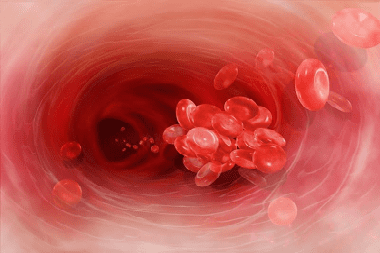Medicine questions >>>> Thrombophilia
Thrombophilia.

Thrombophilia is a congenital or acquired disorder of hemostasis, the result of which is an increased tendency to thrombosis. The causes of thrombophilia are directly related to violations of the rheological properties of blood, in particular, with an increase in blood viscosity due to hereditary gene mutation (gene polymorphism); cryoglobulinemia, polycythemia, increased production of blood coagulation factors (violation of fibrinolysis) and other factors.
In addition to the fact that thrombophilia is dangerous by thromboembolism, it creates complications during pregnancy, which ends in placental abruption, fetal death; provokes ischemia of the heart and brain; is a prerequisite for a violation of the blood supply to the extremities (as a result - tissue necrosis and gangrene).
To diagnose thrombophilia, a blood test is performed, which gives an idea of the quantitative indicators of erythrocytes (increased), increased aggregation of erythrocytes and / or platelets, prothrombin index (increased blood coagulation rate) and reveals abnormalities in blood clotting factors.
Treatment of thrombophilia is based on taking drugs - anticoagulants (low molecular weight heparin in the form of injections) and fibrinolytics. As part of the treatment, transfusions of fresh frozen blood plasma are practiced. Diagnosis and treatment of thrombophilia is carried out under the control of a coagulogram, which is recommended to be carried out several times a day in order to more accurately track changes in hemostasis. Preventive measures include maintaining the correct drinking regime, taking aspirin and its synonyms during high temperatures, excluding high-fat foods from the diet to prevent atherosclerosis.

Read

Read



























